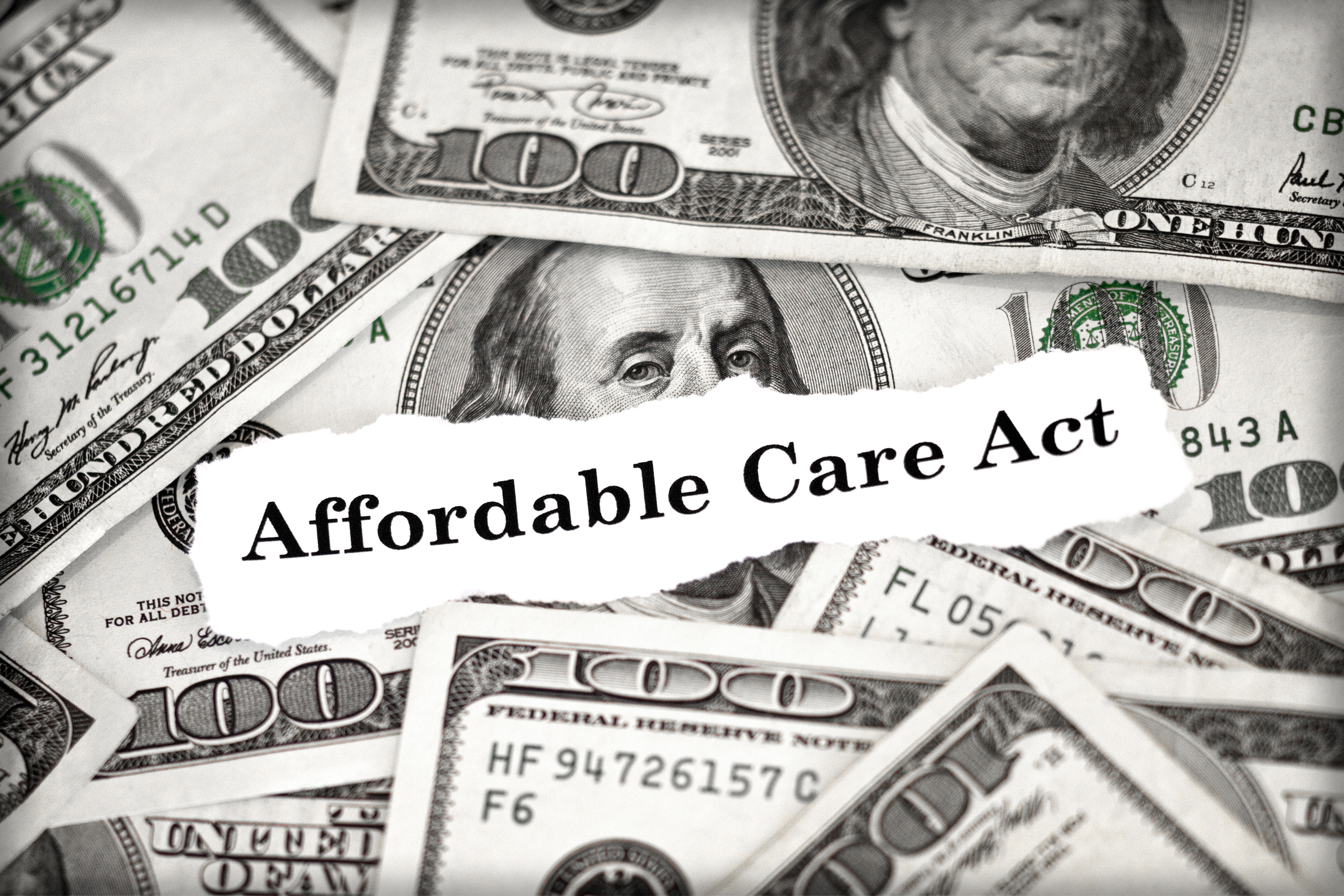When It’s Time to Drop Your Parents’ Health Insurance
Thanks to the Affordable Care Act, the uninsured rate for twenty-somethings has plummeted.


Profit and prosper with the best of Kiplinger's advice on investing, taxes, retirement, personal finance and much more. Delivered daily. Enter your email in the box and click Sign Me Up.
You are now subscribed
Your newsletter sign-up was successful
Want to add more newsletters?

Delivered daily
Kiplinger Today
Profit and prosper with the best of Kiplinger's advice on investing, taxes, retirement, personal finance and much more delivered daily. Smart money moves start here.

Sent five days a week
Kiplinger A Step Ahead
Get practical help to make better financial decisions in your everyday life, from spending to savings on top deals.

Delivered daily
Kiplinger Closing Bell
Get today's biggest financial and investing headlines delivered to your inbox every day the U.S. stock market is open.

Sent twice a week
Kiplinger Adviser Intel
Financial pros across the country share best practices and fresh tactics to preserve and grow your wealth.

Delivered weekly
Kiplinger Tax Tips
Trim your federal and state tax bills with practical tax-planning and tax-cutting strategies.

Sent twice a week
Kiplinger Retirement Tips
Your twice-a-week guide to planning and enjoying a financially secure and richly rewarding retirement

Sent bimonthly.
Kiplinger Adviser Angle
Insights for advisers, wealth managers and other financial professionals.

Sent twice a week
Kiplinger Investing Weekly
Your twice-a-week roundup of promising stocks, funds, companies and industries you should consider, ones you should avoid, and why.

Sent weekly for six weeks
Kiplinger Invest for Retirement
Your step-by-step six-part series on how to invest for retirement, from devising a successful strategy to exactly which investments to choose.
One of the most popular provisions of the Affordable Care Act allows young adults to stay on their parents’ health insurance plan until they’re 26. I’ve been fortunate to have coverage through my parent’s insurance plan for several years, but I will soon switch to a Kiplinger plan.
Some insurers allow adult children to stay on their parents’ plan through the month of their 26th birthday, while others stop coverage on your birthday. Either way, if you’re covered by your parents’ plan, you should start looking for alternatives well before time runs out.
COBRA coverage. You have the option to stay on your parents’ plan after you turn 26 under COBRA (which stands for the Consolidated Omnibus Budget Reconciliation Act). The law typically allows someone who leaves their job to remain on their employer’s plan for up to 18 months, but young adults who are about to age out of their parents’ plan are also eligible. You’ll have to notify your parent’s employer that you want to sign up for COBRA, and once you do, benefits will be available to you for up to 36 months. The one major caveat: COBRA is expensive. Many employers cover all or most of the cost of employees’ health insurance premiums, but when you elect to enroll in COBRA, you (or your parent) will have to pay the entire premium. Average premiums for COBRA plans are $600 to $700 per month, says Karen Pollitz, senior fellow at the Kaiser Family Foundation.
From just $107.88 $24.99 for Kiplinger Personal Finance
Become a smarter, better informed investor. Subscribe from just $107.88 $24.99, plus get up to 4 Special Issues

Sign up for Kiplinger’s Free Newsletters
Profit and prosper with the best of expert advice on investing, taxes, retirement, personal finance and more - straight to your e-mail.
Profit and prosper with the best of expert advice - straight to your e-mail.
If you’re working and your employer offers health benefits, its plan is likely to be less expensive than continuing coverage under COBRA. Turning age 26 and losing coverage through your parents’ plan is a “qualifying event,” which means you don’t have to wait until open enrollment (which usually occurs toward the end of the year) to sign up for health insurance.
Affordable Care Act. If you don’t have health insurance through your job, your next stop should be HealthCare.gov. The Affordable Care Act expanded access to health care for all uninsured Americans, including young adults, through the online health insurance marketplace.
Plus, you may be eligible for financial assistance that will significantly lower the cost of premiums. The American Rescue Plan, signed into law in March, significantly expanded ACA subsidies, lowering premiums for individuals at every income level and eliminating them entirely for some households. If your estimated modified adjusted gross income for 2021 is between 100% and 150% of the federal poverty level ($12,880 to $19,320 for a one-person household), you’ll be able to purchase enhanced silver-level plans at no cost. Visit HealthCare.gov and select your state to access the health insurance marketplace. You can also use this tool to determine whether you’re eligible for Medicaid, which provides health insurance coverage to low-income households.
Coverage for students. If you’re attending graduate school or any educational institution, you may qualify for student health insurance. Student health insurance is often very good, but the quality of coverage varies, says Mina Schultz, ACA outreach and enrollment manager at Young Invincibles, a young adult advocacy group. Another option for students who are unemployed is Medicaid, Schultz says. If you earn less than $16,000, you may be able to enroll in Medicaid for a low cost or no cost at all.
If you’re not sure which option is best for you, consider consulting with an ACA Navigator. ACA Navigators are a network of health care experts who can help you apply for health insurance and may provide assistance even after you’ve enrolled in a plan. You can find one in your area at GetCoveredAmerica.org.
Profit and prosper with the best of Kiplinger's advice on investing, taxes, retirement, personal finance and much more. Delivered daily. Enter your email in the box and click Sign Me Up.

Emma Patch joined Kiplinger in 2020. She previously interned for Kiplinger's Retirement Report and before that, for a boutique investment firm in New York City. She served as editor-at-large and features editor for Middlebury College's student newspaper, The Campus. She specializes in travel, student debt and a number of other personal finance topics. Born in London, Emma grew up in Connecticut and now lives in Washington, D.C.
-
 Dow Adds 1,206 Points to Top 50,000: Stock Market Today
Dow Adds 1,206 Points to Top 50,000: Stock Market TodayThe S&P 500 and Nasdaq also had strong finishes to a volatile week, with beaten-down tech stocks outperforming.
-
 Ask the Tax Editor: Federal Income Tax Deductions
Ask the Tax Editor: Federal Income Tax DeductionsAsk the Editor In this week's Ask the Editor Q&A, Joy Taylor answers questions on federal income tax deductions
-
 States With No-Fault Car Insurance Laws (and How No-Fault Car Insurance Works)
States With No-Fault Car Insurance Laws (and How No-Fault Car Insurance Works)A breakdown of the confusing rules around no-fault car insurance in every state where it exists.
-
 Health Insurance Tax Credits and the Government Shutdown: What to Know
Health Insurance Tax Credits and the Government Shutdown: What to KnowTax Credits Previous shutdowns have occurred for various reasons, including border wall funding. But this time, the standoff centered in part on health care and taxes.
-
 What to Know About New Medicaid Cuts: Is Your Local Hospital Closing Soon?
What to Know About New Medicaid Cuts: Is Your Local Hospital Closing Soon?Tax Policy Trump’s ‘One Big Beautiful Bill’ is now law, and rural hospitals across the U.S. are on the chopping block.
-
 Trump’s Tax Cut Risks Your SNAP, Medicaid Benefits
Trump’s Tax Cut Risks Your SNAP, Medicaid BenefitsTax Cuts The GOP budget blueprint could slash lifesaving programs for millions of U.S. households.
-
 What Does Medicare Not Cover? Eight Things You Should Know
What Does Medicare Not Cover? Eight Things You Should KnowMedicare Part A and Part B leave gaps in your healthcare coverage. But Medicare Advantage has problems, too.
-
 End of Expanded Premium Tax Credit Would Drive Uninsured Rates Higher
End of Expanded Premium Tax Credit Would Drive Uninsured Rates HigherTax Credits Millions of people could become uninsured if Congress fails to extend the enhanced premium tax credit.
-
 Over 162,000 Dreamers Cut Off From Affordable Care Act Insurance
Over 162,000 Dreamers Cut Off From Affordable Care Act InsuranceHealth Insurance A federal court in North Dakota has blocked ACA coverage for DACA recipients in 19 states. Here's what it means.
-
 2025 Open Enrollment: Some DACA Recipients Can Purchase Affordable Care Act Health Insurance
2025 Open Enrollment: Some DACA Recipients Can Purchase Affordable Care Act Health InsuranceOpen Enrollment Your eligibility to purchase health insurance from the federal marketplace may have changed. Here's what you need to know.
-
 Medicare, ACA Call Center Workers To Hold Another Protest: What To Know
Medicare, ACA Call Center Workers To Hold Another Protest: What To KnowMedicare and Obamacare call center employees plan another protest, this time in Washington, DC on December 12.